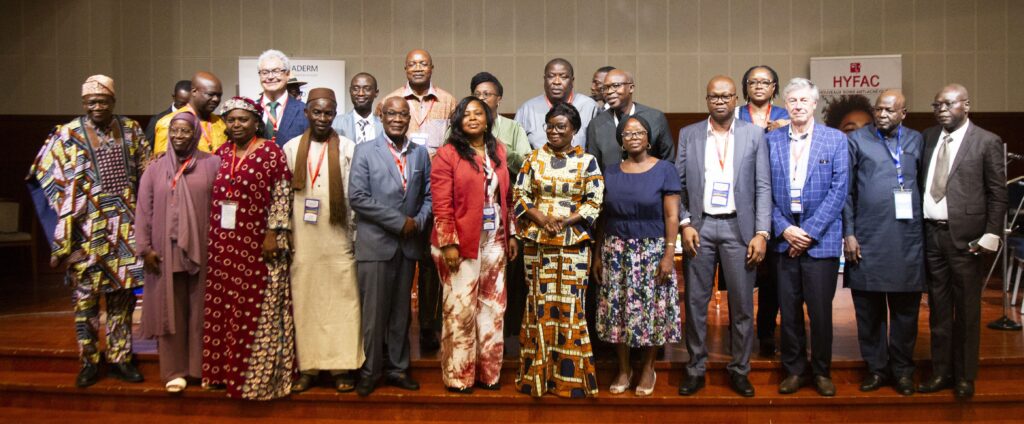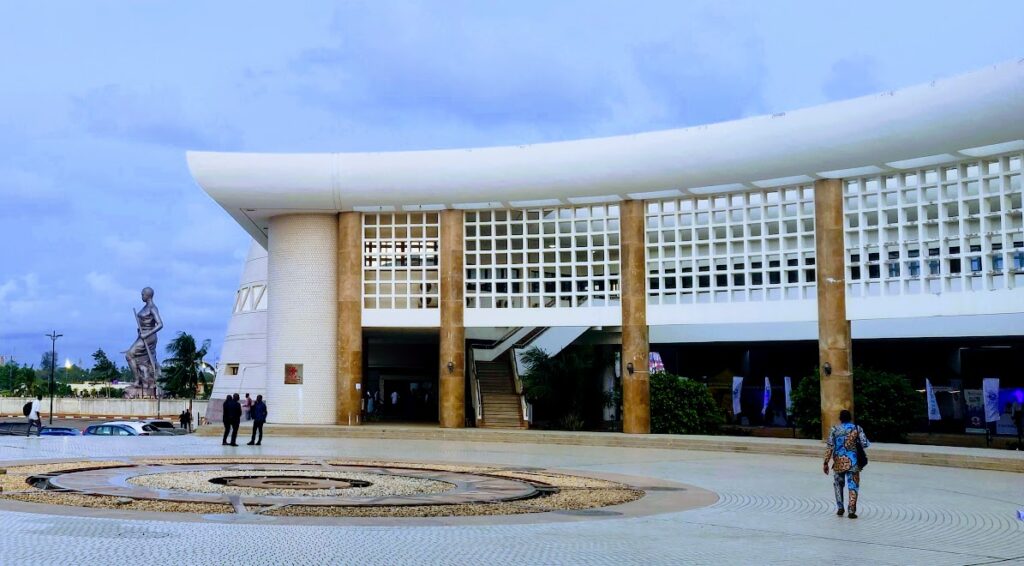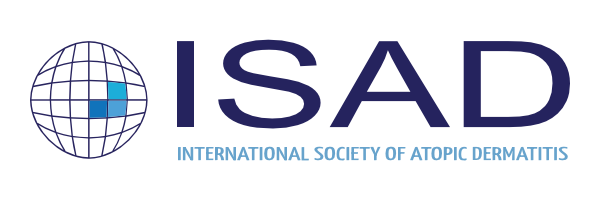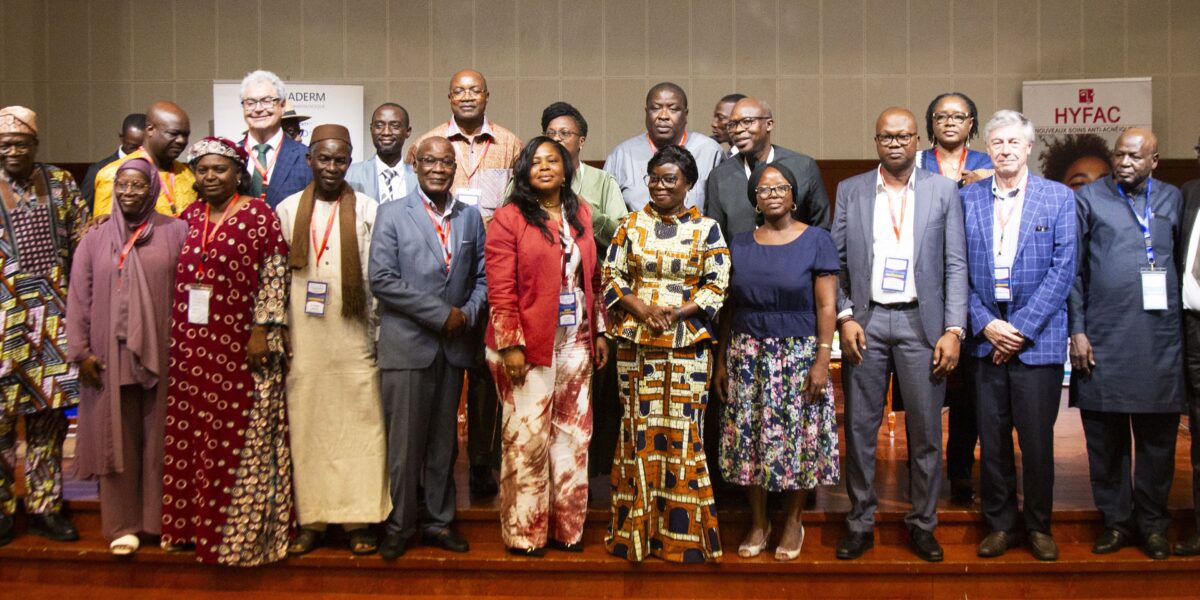April 16–18, Cotonou, Benin
The « 3rd Journées Béninoises de Dermato-Vénérologie », held from April 16–18 in Cotonou under the auspices of the Ministry of Health of the Republic of Benin, was more than just a national dermatology conference. In a country with only about two dozen dermatologists serving a population of 13 million, Benin has made significant strides by offering dermatology training through its medical school and placing specialists in both tertiary and secondary hospitals.
With more than 300 participants, the event had a strong public health focus, providing training for nurses, general practitioners, and pharmacists. At the same time, it served as a regional dermatology congress for Sub-Saharan Africa, bringing together representatives from across Francophone West and Central Africa. Cameroon and Nigeria—Benin’s English-speaking neighbor, with Lagos just 100 kilometers from Cotonou—were the only Anglophone countries represented.

Prof. Degboe is in the front center wearing red; Prof. Kaloga is in the back center wearing grey.
Organized by Prof. Bérénice Degboe, the conference spotlighted the growing institutional strength of key academic centers in the region, including Dakar (Senegal), Abidjan (Côte d’Ivoire), Ouagadougou (Burkina Faso), and Bamako (Mali). These centers are advancing subspecialties such as dermatopathology, allergology, pediatric dermatology, and genetics.
ISAD was proud to sponsor and contribute to the event, particularly given the rising burden of atopic dermatitis (AD) and the ongoing challenges in accessing care and medications. Capacity-building initiatives like the ISAD-WHO AD on black skin course for primary care workers and advocacy to include emollients in the WHO essential medicines list for low-income countries were featured during the meeting. However, the needs remain significant and far from being fully addressed—even with the use of AI-enhanced decision tools and telemedicine platforms.
Prof. Kaloga from Côte d’Ivoire emphasized that the upcoming World Health Assembly (WHA) in May 2025 will consider a landmark resolution to elevate skin health as a global health priority. This resolution calls for the creation of a WHO Global Action Plan for Skin Diseases and increased investment in training healthcare providers in the diagnosis and management of these conditions. The leadership of Côte d’Ivoire, Nigeria, Togo in co-sponsoring this resolution highlights West Africa’s growing role as a strong voice in global dermatology advocacy.

Beyond its scientific and policy impact, the conference was deeply enriching on a human level. The camaraderie among African colleagues—something increasingly rare in Western settings—was palpable. The event also showcased emerging young talents, many of whom are eager to establish pan-African collaborations in dermatology subspecialties. This is already taking shape in atopic dermatitis through the ISAD-ASDV Task Force on AD.


